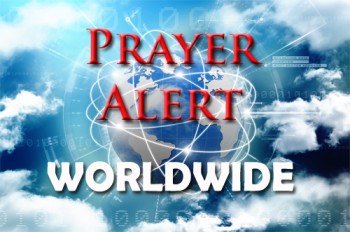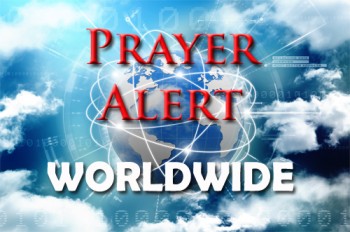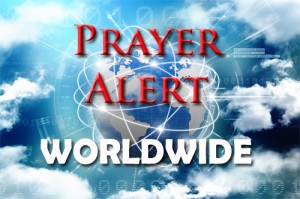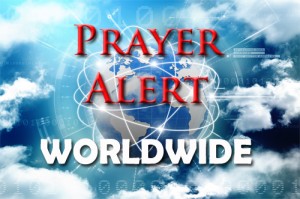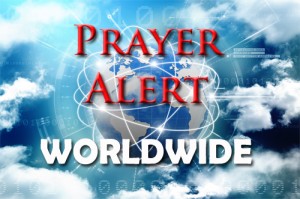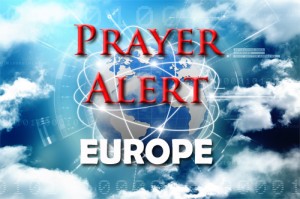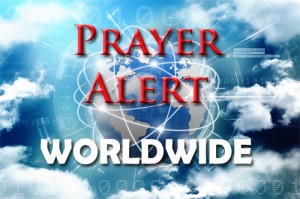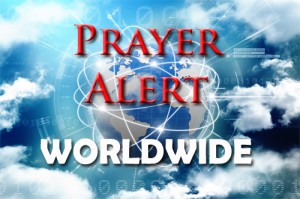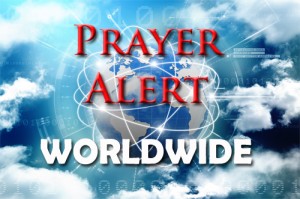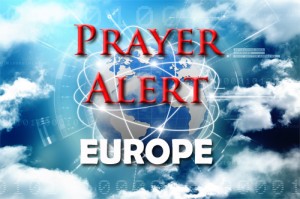Displaying items by tag: elections
Nigeria: elections on 16 Feb and 2 March
Rev Mathew Sukada, from Jos, has cautioned Nigerians, ‘Do not kill yourselves over politicians; they do not even know you and will reconcile with each other long after you are gone’. He said some politicians were more concerned about their personal interests, and cautioned youths against being used as thugs to kill and destroy. ‘Politicians seeking to use you for selfish reasons will offer you peanuts to fight and kill for them. When you get killed, they won’t remember you. When you get injured, they won’t have time for you. When you are caught, they will deny you. You must learn to be wise and protect yourselves against destruction. As Christians, you have a duty to serve only God, your Creator.’ An army commander told troops, ‘Let me warn and remind you of the need to remain apolitical in the performance of your duties during the election period. Defaulters will be severely dealt with. You must be professional, patriotic and respectful of the rights of citizens.’ See
Africa: elections, poverty and potential
This year, 24 of Africa’s 54 countries are scheduled to hold legislative, general, or presidential elections. Extreme poverty and state fragility prevail in parts of Africa. This year, the World Data Lab estimates that by 2030, 70% of the world’s poor will live in Africa (notably in Nigeria and the Congo) and by that date 13 African countries will have seen an increase in the number of those living in extreme poverty. Based on these forecasts, poverty will continue to strain government institutions and threaten stability. Climate change is expected to exacerbate the challenge, with disproportionate effects on the Sahel and other unstable areas. However, massive opportunities exist for many to enter greater prosperity. The middle class is expanding, businesses are growing to meet consumption needs, and a young fast-growing population with rapid technology adoption is making the continent fertile for innovation. Pray for institutional changes and new approaches to eliminate poverty so that no country is left behind.
Three elections on 24 February 2019
On this day a national referendum to ratify Cuba's new constitution will take place; the government says that gay marriage protections will be removed from the draft, but this is still being argued by politicians. Moldova’s elections are under a new mixed electoral system which people do not trust. Pray for peaceful electioneering and outcomes in both these situations. Since the military coup in Thailand, a new political party, the youthful Future Forward Party, has emerged (see). Critics say the constitution dilutes the power of elected governments and embeds the role of the military role in politics and policy for the next twenty years. Activists have been calling on the government not to postpone the election again, amid fears that it might do so.
Elections needing prayer in 2019
The results of forthcoming elections will be important in many ways - domestic, religious, regional and global. El Salvador elects a president on 3 February: security, corruption and migration will be campaign issues. On 16 February President Buhari seeks re-election in Nigeria, where electoral violence remains a real concern. Ukraine’s presidential election on 31 March will focus on security and the economy. Afghanistan’s fourth presidential election since 2001, on 20 April, will test its capacity to conduct a credible, orderly process amid deteriorating security conditions. In South Africa the ruling ANC, dogged by record-high unemployment and corruption, faces an election test in May following the resignation of President Zuma. European parliamentary elections between 23-26 May will see anti-Europe and Euro-skeptic forces capitalising on anti-immigration and populist economic issues post-Brexit. In Guatemala, general elections in June will focus on the economy, reforms to public administration, migration, and anti-corruption issues that have divided the country over recent years.
Democratic Republic of Congo: UN concern before December elections
The UN has raised the alarm over fighting in eastern DRC, warning that the violence could hamper next month's elections. Leila Zerrougui, a UN special representative, said that three provinces were most at risk. ‘There is a potential for armed group interference in the elections’, she said at a UN security council meeting. The area has been troubled for decades by inter-ethnic bloodshed and militia violence, a crisis that has escalated this year. DRC is also battling the worst Ebola outbreak in its history. These factors cast a shadow over the country's ability to stage elections on 23 December to succeed President Joseph Kabila.
Sweden: cars torched ahead of elections
In the elections on 9 September, the anti-immigration Eurosceptic party Sweden Democrats hopes to become the country’s largest political party. It has accused the ruling centre-left coalition of allowing ‘no-go zones’ to emerge in deprived areas with large migrant populations. On 13 August gangs of masked youths dressed in black firebombed at least 100 cars in several cities. Violent crime is high on the political agenda after a spate of shootings and grenade attacks. Prime minister Stefan Lofven said that the perpetrators threatened to ‘destroy’ neighbourhoods and asked them, ‘What the hell are you doing?’ Pray for Mr Lofven and his law enforcement to bring peace and calm to challenging areas ahead of the elections. Operation World states, ‘Politicians (often without any clear faith in Jesus) are frequently chosen to sit on parish councils.’
Cameroon: growing violence
The World Council of Churches (WCC) has called on the Cameroonian government to stop using force to punish its people in the English-speaking region. The authorities should immediately cease using ‘disproportionate and deadly force against civilians and protect everyone’s human rights’. The UN described the situation as ‘an unprecedented complex humanitarian crisis’ caused by violence between the government and both English-speaking separatists in the west of Nigeria and Boko Haram in the north-east. The country has been affected by the mass displacement of hundreds of thousands of Nigerians and Cameroonians; also by insecurity, malnutrition, and a ‘very disturbing’ risk of epidemics, because of the ongoing conflict. The WCC particularly condemned escalating violence against women and children. Paul Biya, who has been president since 1982, intends to run for a seventh term.
Mexico: Entire police force arrested
Ocampo’s entire police force was arrested following the murder of a left-wing mayoral candidate, Fernando Angeles Juarez, after a previous attempt to question them resulted in one official reportedly being ‘chased out in a hail of bullets.’ Ocampo, is plagued by illegal logging and gangs. Their police force is accused of being involved in corruption as Mexico attempts to fight back against the drug cartels. There is escalating violence because there are far more elections being held simultaneously than ever before in Mexico. With over 3,400 local, state and federal posts at stake, there are 15,000+ candidates on the campaign trail and criminal groups want ‘their people to win’ so they can gain control over territory, through local governments. At least 18 candidates have been killed while running for political posts. The 1 July elections will decide the presidency, governorships and Congress.
Turkey: critical election on 24 June
In March we prayed for Turkey to come to a turning point because President Erdogan's rise to power was returning Turkey to its Ottoman and Islamic heritage through authoritarianism, consolidation of power, increased support of radical Islam, reintroduction of Islamic cultural practices, and the dismissal of thousands of government workers, military, and journalists. Erdogan is a ruler trying to maintain the facade of democratic legitimacy by calling an election which he will probably win. It will bring in a new presidential system that drastically increases the powers of the president, while reducing the role of the parliament. Erdogan's Turkish nationalism stifles freedom of expression. Christian believers are treated as traitors to both Islam and the Turkish identity. Under the existing martial law, Erdogan has purged Turkey of political opponents and dissenters and has jailed many journalists. Pray for public sentiment to recognise the importance of religious and other freedoms. (Joshua 24:22)
Sweden: migration and approaching elections
Far-right Sweden Democrats (SD) have seen growing support in polls as campaign discourse focuses on refugees and migrants. With national elections due in September, migration policy is shaping up to be a core campaign issue for parties across the political spectrum. Linda Snecker, for the Left Party, believes the increasing focus on migration is changing the political landscape. While 27,000 people applied for asylum in 2017, immigration minister Helene Fritzon said the country should only grant asylum each year to 14,000 -15,000 applicants. SD claim their party does not oppose immigration, but argue that it ‘must be kept at such a level that it does not pose a threat to national identity or the welfare and security of Sweden’. Many SD members share, spread and sympathise with news and propaganda sites connected to white nationalism.
